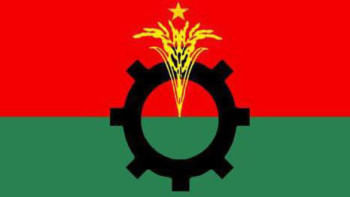Rohingya Relocation: Dhaka seeks help; diplomats sceptic
The government yesterday sought financial support from the United Nations and other international partners for relocating tens of thousands of Rohingya Muslims, who had fled ethnic cleansing in Myanmar, to Thengar Char in Hatiya in the Bay of Bengal.
In response, the diplomatic community in Dhaka suggested that the Rohingyas in Cox's Bazar should not be moved against their will and that the place chosen for relocation was uninhabitable and prone to floods.
The exchange took place when Foreign Minister AH Mahmood Ali briefed diplomats on the relocation plan at the State Guesthouse, Padma yesterday afternoon.
Describing how people of the Myanmar's minority community are now living in the coastal areas of Bangladesh, the minister said the authorities were facing formidable challenges of providing them with humanitarian assistances.
Besides, the accommodation arrangements have adverse impacts on the overall socio-economic, political, demographic, environmental, humanitarian and security situations in Cox's Bazar and adjacent districts. That is in turn a setback for eco-tourism, said AH Mahmood.
Blaming what he deemed as the vulnerable nature of this population, he said networks have emerged in those areas who are involved in human trafficking and smuggling of narcotics.
Ambassadors/high commissioners/heads of various diplomatic missions and officials from UNRC, IOM and UNHCR attended the briefing.
After the briefing, an envoy on condition of anonymity told The Daily Star that the government seems to be going ahead with its “controversial plan” to relocate Rohingya refugees to the remote island despite warnings.
The government asked for financial assistance from the international community to develop the island and move the Rohingya population from Cox's Bazar to Hatiya, he said.
The foreign minister, however, said Bangladesh considers this as a temporary arrangement and requested the international community to take meaningful measures for their repatriation to their homeland Myanmar.
He spelled out the relocation plan and rejected foreign diplomats' argument that the char land is uninhabitable.
Already, a small number of people have begun living in the island, AH Mahmood said.
The government plans to build necessary infrastructures including shelters, schools, hospitals/health centres, mosques, roads etc. The relocation will take place only after the development works are completed, the minister said.
He also expressed the hope that he would take diplomats on a visit to the island once the infrastructures are in place.
Asked whether the government received any instant assurance of funds for relocation, another foreign diplomat replied in the negative.
However, according to a foreign ministry press release, representatives of the diplomatic community in general expressed their readiness to help implement the plan once it is finalised.
They expressed the hope that the new arrangements will improve the living condition of Rohingyas, but at the same time acknowledged the ultimate solution lies in their repatriation to Myanmar, the ministry said in the release, claiming to have received an assurance from foreign diplomats of their full support in this regard.
Earlier, the government said several countries offered assistance while others asked the Organisation of Islamic Cooperation (OIC) to help Bangladesh take care of the Muslim refugees during the OIC foreign ministers' meet in Malaysia on January 19.
HT Imam, adviser to the prime minister; State Minister for Foreign Affairs Md Shahriar Alam, the cabinet secretary, principal secretary to the PM, foreign secretary and other high officials of the government attended the briefing.
According to an UN report, around 66,000 people have fled from the Muslim-majority northern part of Rakhine State to Bangladesh since Myanmar's military launched a security operation in response to attacks on police border posts on October 9 last year. The UN humanitarian office has recently put the figure at 69,000.
Gang rapes, killings, including those of babies and young children, disappearances and other serious human rights violations by Myanmar's security forces in a sealed-off area north of Maungdaw in northern Rakhine State have been detailed in the new UN report based on interviews with victims across the border in Bangladesh.
However, Myanmar's own probe into the unrest denied that the security forces had carried out a genocidal campaign against Rohingyas.
The Myanmar's government led by Nobel laureate Aung San Suu Kyi said the allegations were invented, in efforts to resist the mounting international pressure to protect the minority community.
Rohingyas are currently living in different camps -- Nayapara, Leda and Kutupalang in Teknaf and Ukhia -- apart from other parts of the country.
At yesterday's briefing, the government said two camps in Cox's Bazar can actually accommodate 30,000 people but more than three lakhs are living there in inhuman condition, which have a negative impact on environment and local society and pose a serious security threat.
This is why the government has in principle decided to relocate the Rohingyas.
According to officials, the number of documented, undocumented and newly arrived Rohingyas may be more than 400,000.


 For all latest news, follow The Daily Star's Google News channel.
For all latest news, follow The Daily Star's Google News channel. 



Comments